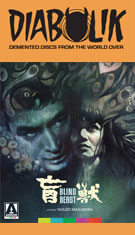
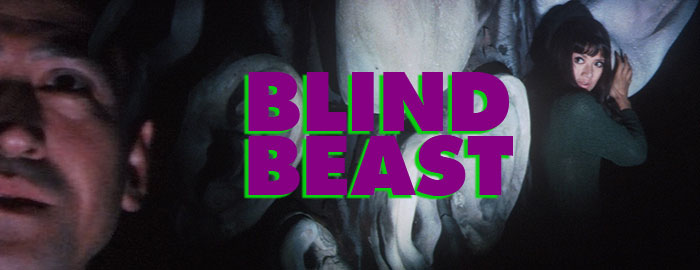
Color, 1969, 84 mins. 7 secs.
Directed by Yasuzô Masumura
Starring Eiji Funakoshi, Mako Midori, Noriko Sengoku
Arrow Video (Blu-ray) (US/UK RA/RB HD), Fantoma (DVD) (US R1 NTSC), Rapid Eye (DVD) (Germany R2 PAL) / WS (2.35:1) (16:9)
A deeply unsettling meeting of the minds between 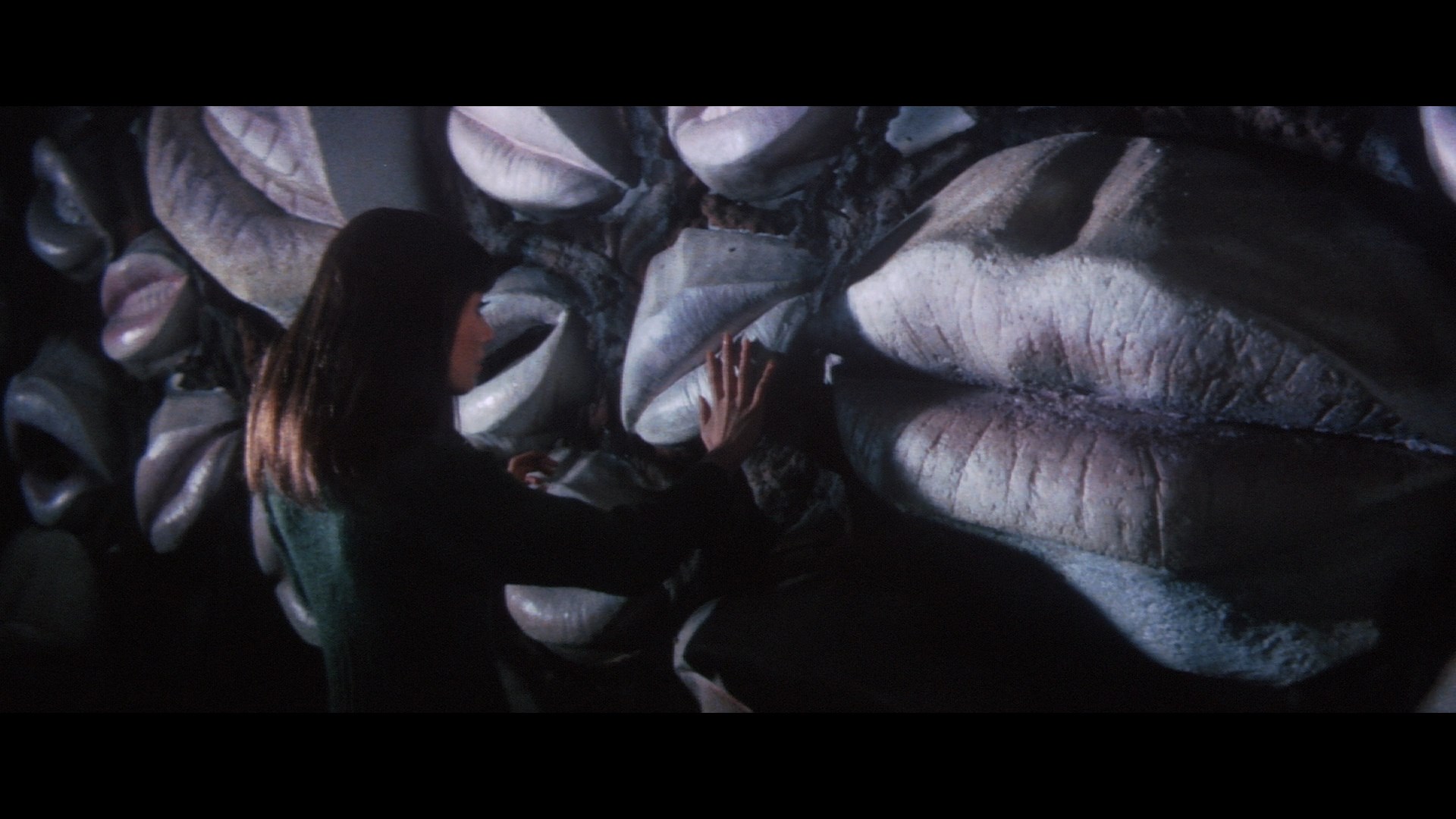 director Yasuzô Masumura (Giants and Toys) and legendary Gothic horror writer Edogawa
director Yasuzô Masumura (Giants and Toys) and legendary Gothic horror writer Edogawa 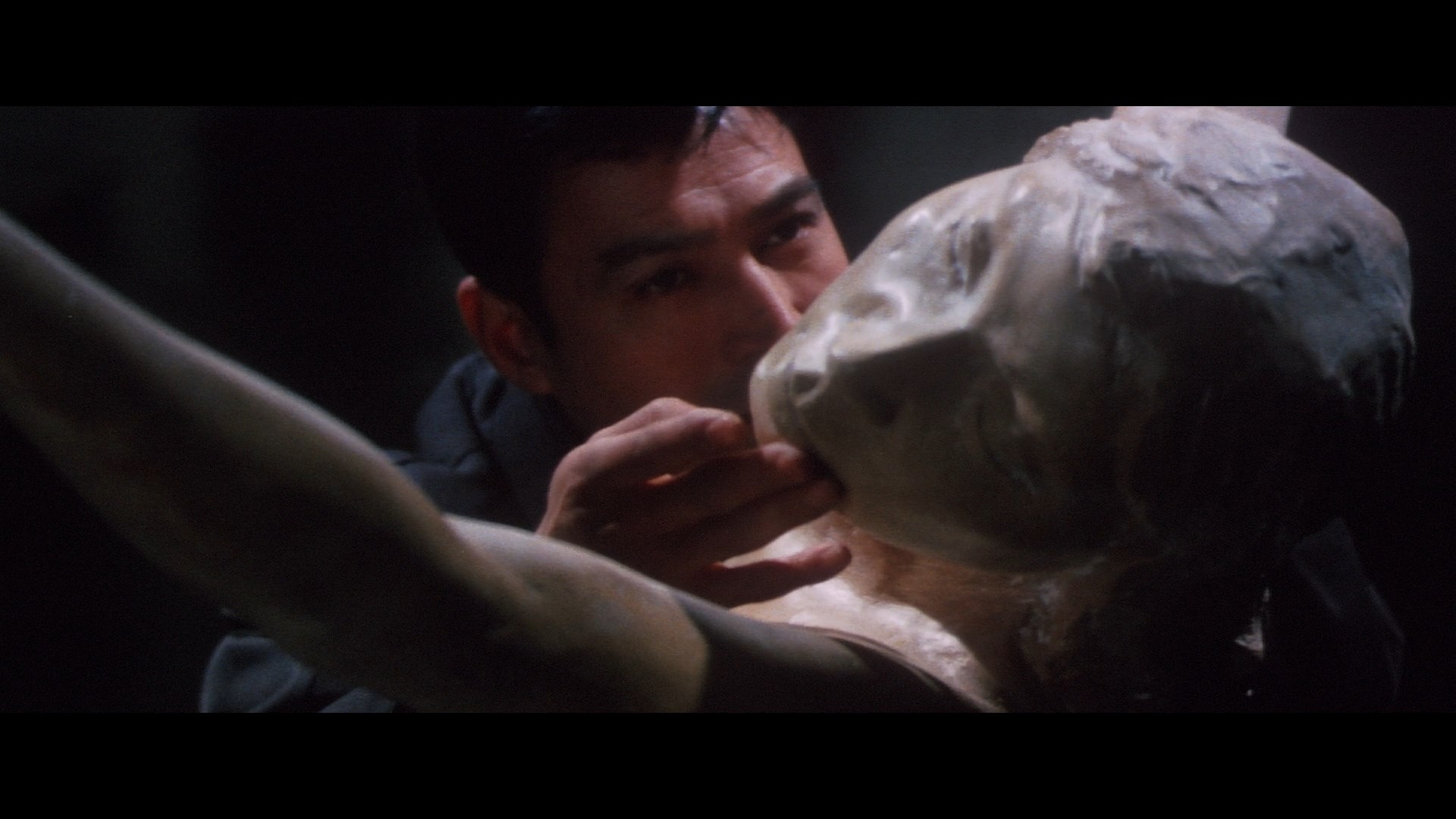 Rampo, Blind Beast (Moju) became something of a hotly desired title among English-speaking horror fans back in the '80s and '90s after a tantalizing write up in Phil Hardy's Encyclopedia of the Horror Film, followed by the appropriation of its shocking conclusion into a certain widely detested art film in the late '90s. Out of circulation, the film popped up in English-subtitled prints in the early '00s and inaugurated a major Western appraisal of Masumura's work thanks to a string of essential DVD releases at the time, now revived again on Blu-ray courtesy of Arrow Video.
Rampo, Blind Beast (Moju) became something of a hotly desired title among English-speaking horror fans back in the '80s and '90s after a tantalizing write up in Phil Hardy's Encyclopedia of the Horror Film, followed by the appropriation of its shocking conclusion into a certain widely detested art film in the late '90s. Out of circulation, the film popped up in English-subtitled prints in the early '00s and inaugurated a major Western appraisal of Masumura's work thanks to a string of essential DVD releases at the time, now revived again on Blu-ray courtesy of Arrow Video.
Accompanied by the strains of mournful chamber music we meet lovely bondage model Aki (Mako Midori), who observes a blind man, Michio (Eiji Funakoshi), obsessively caressing a statue in a museum. Later he shows up as her replacement masseuse and, with the aid of his mother (Noriko Sengoku), abducts the poor girl. She awakens in a darkened warehouse, where the walls and floor are covered with sculpted replicas of eyeballs, breasts, legs... with two giant nude figures as the centerpiece. At first Aki resists her captors, but eventually she and Michio - a sculptor 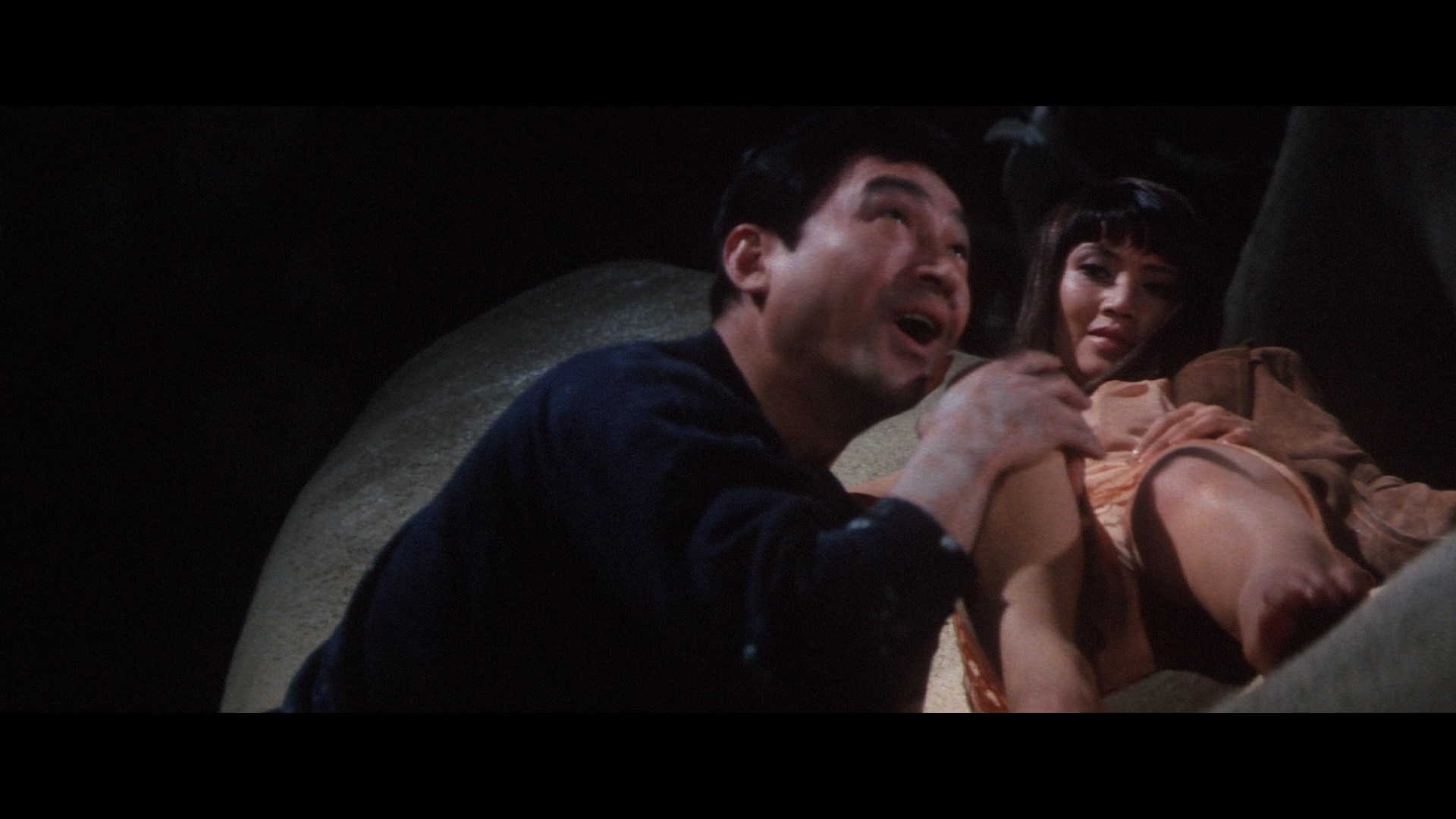 determined to capture her physical and spiritual essence
determined to capture her physical and spiritual essence 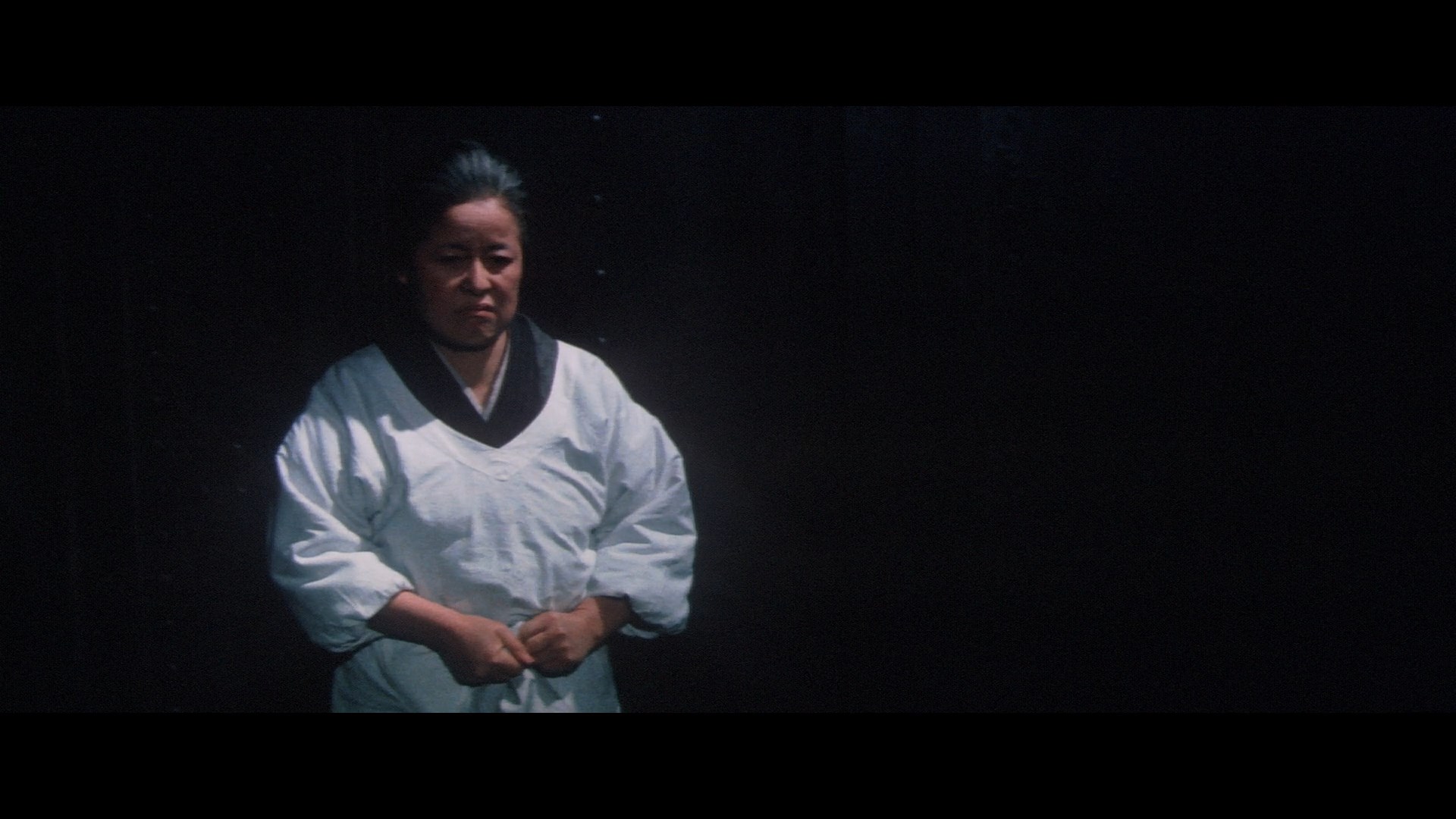 in his craft - commence a mutually destructive relationship based on sex, pain, and obsession, leading to an inevitable, grotesque finale.
in his craft - commence a mutually destructive relationship based on sex, pain, and obsession, leading to an inevitable, grotesque finale.
Despite the dark and perverse nature of its subject matter, Moju contains far more psychological violence than physical. The undeniably effective ending is rendered in an unusual manner of cinematic shorthand (also opening the door for an interpretation of the film as a twisted reverie inside the Michio's head), while the general suffering is delivered more by the actors' primal performances than any visible brutality directly unleashed on their bodies. This is a long way from the gut-punch gore of earlier Japanese horror like Jigoku; instead, Blind Beast prefers to burrow into the viewer's psyche by uncovering the potential damage latent in the tension between man and woman. Even the nudity, a longtime staple of "pink" cinema, is depicted in a strange, non-exploitative fashion, particularly as the narrative advances in the third act. Masumura's astonishing visual approach is the real star here, turning each shot into a saturated canvas of deep 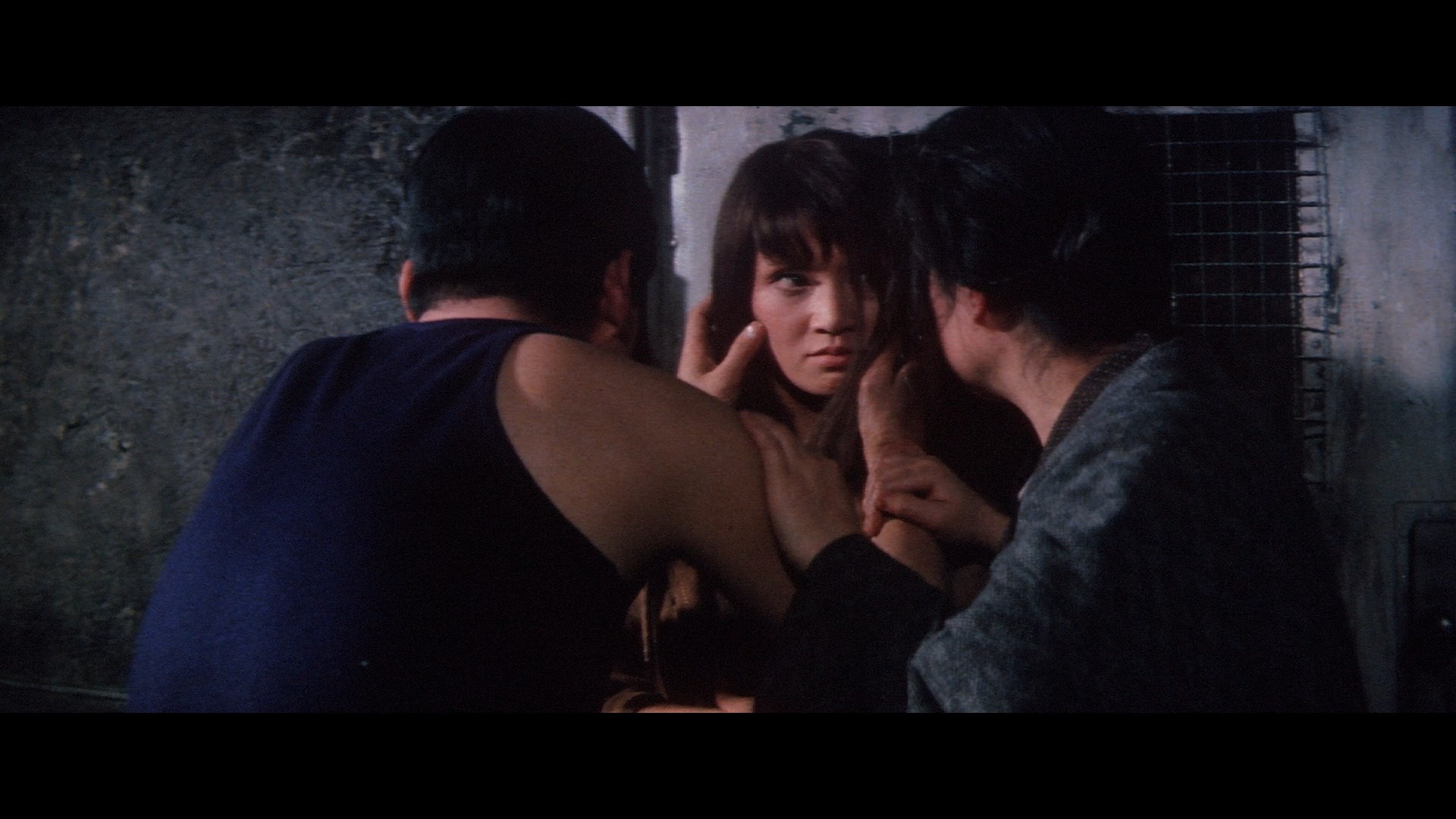 shadows and rich colors. For an interesting double bill, try pairing this one up with the amazing S&M Italian captivity favorite, The Frightened Woman, which makes similar use of the same premise and giant sculpted
shadows and rich colors. For an interesting double bill, try pairing this one up with the amazing S&M Italian captivity favorite, The Frightened Woman, which makes similar use of the same premise and giant sculpted 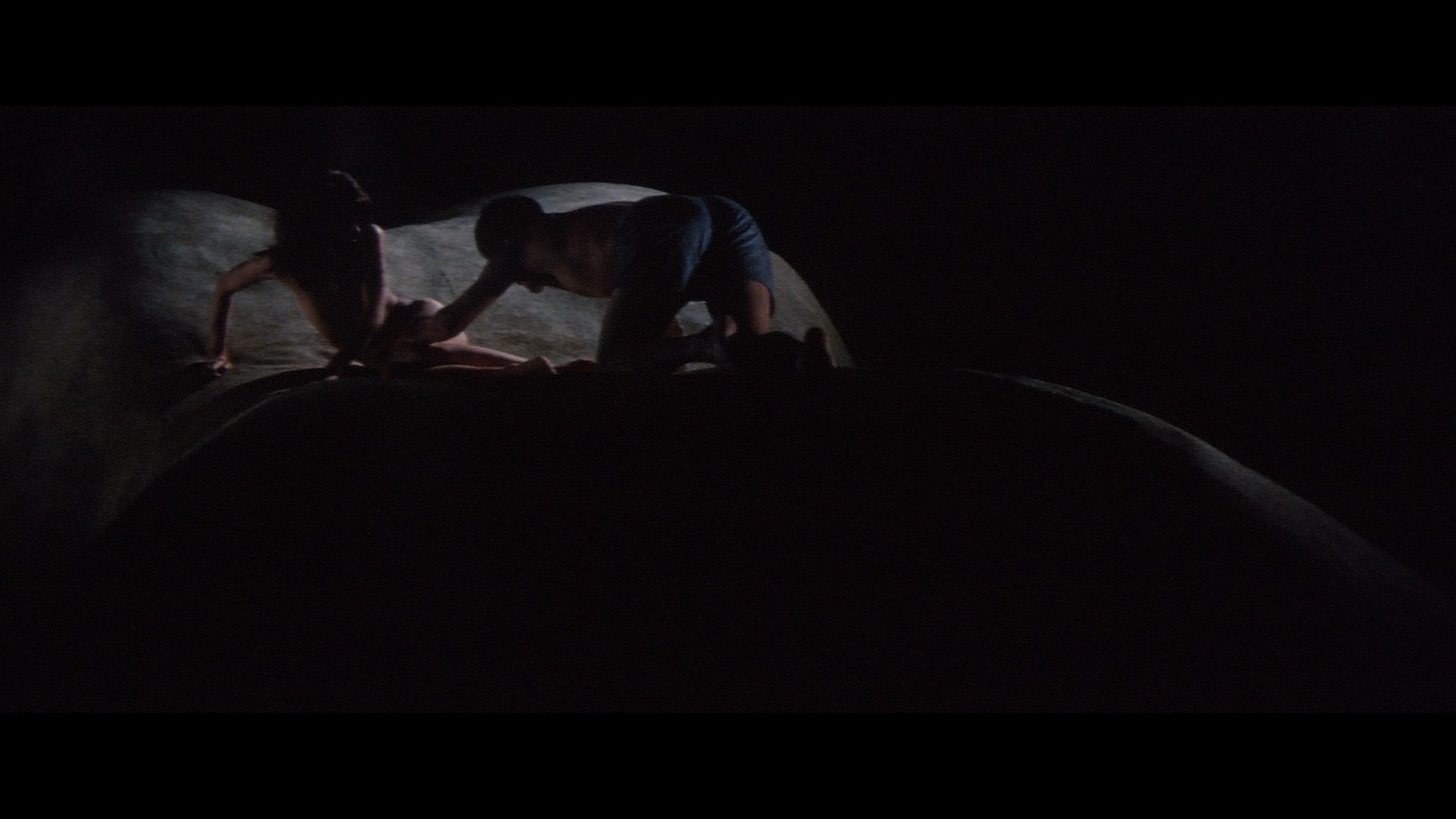 bodies.
bodies.
Though it had few home video precedents, Fantoma's Blind Beast DVD from 2001 was a godsend at the time for viewers curious about the film. The original elements have been kept in good shape, and the original scope framing seen here is essential to appreciating its striking compositions. As with most other comparable titles of its vintage, the mono soundtrack is serviceable but limited with a little upper end harshness sometimes evident in the original recording. The original Japanese trailer (in scope) is also included along with a Masumura bio and filmography, and a gallery featuring some great production design sketches.
Two decades later in 2021, Arrow Video bowed Masumura's film on Blu-ray featuring a significantly improved HD scan that features much deeper blacks and a more natural color scheme, veering away from the yellowish appearance of the DVD. Framing-wise there's some slight peripheral loss on the left and right edges with no impact on the compositions; detail is also greatly improved, which gives the sculpture shots in particular a stronger tactile quality. The LPCM 2.0 Japanese mono track is also better with more range than the earlier release, though it's still fairly limited by the nature of the source; optional English 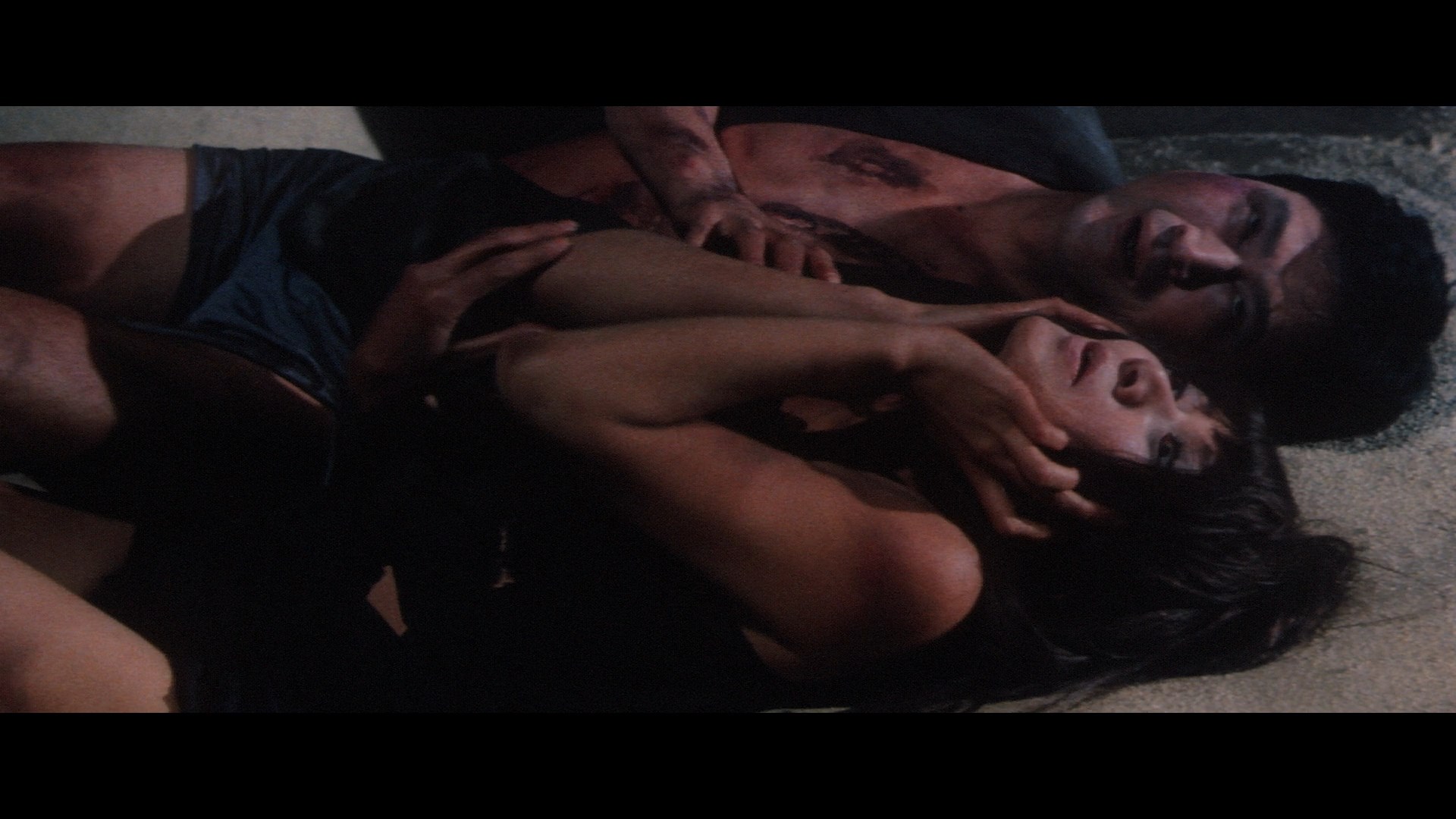 subtitles are included. A very well-researched and worthwhile audio commentary by Earl
subtitles are included. A very well-researched and worthwhile audio commentary by Earl 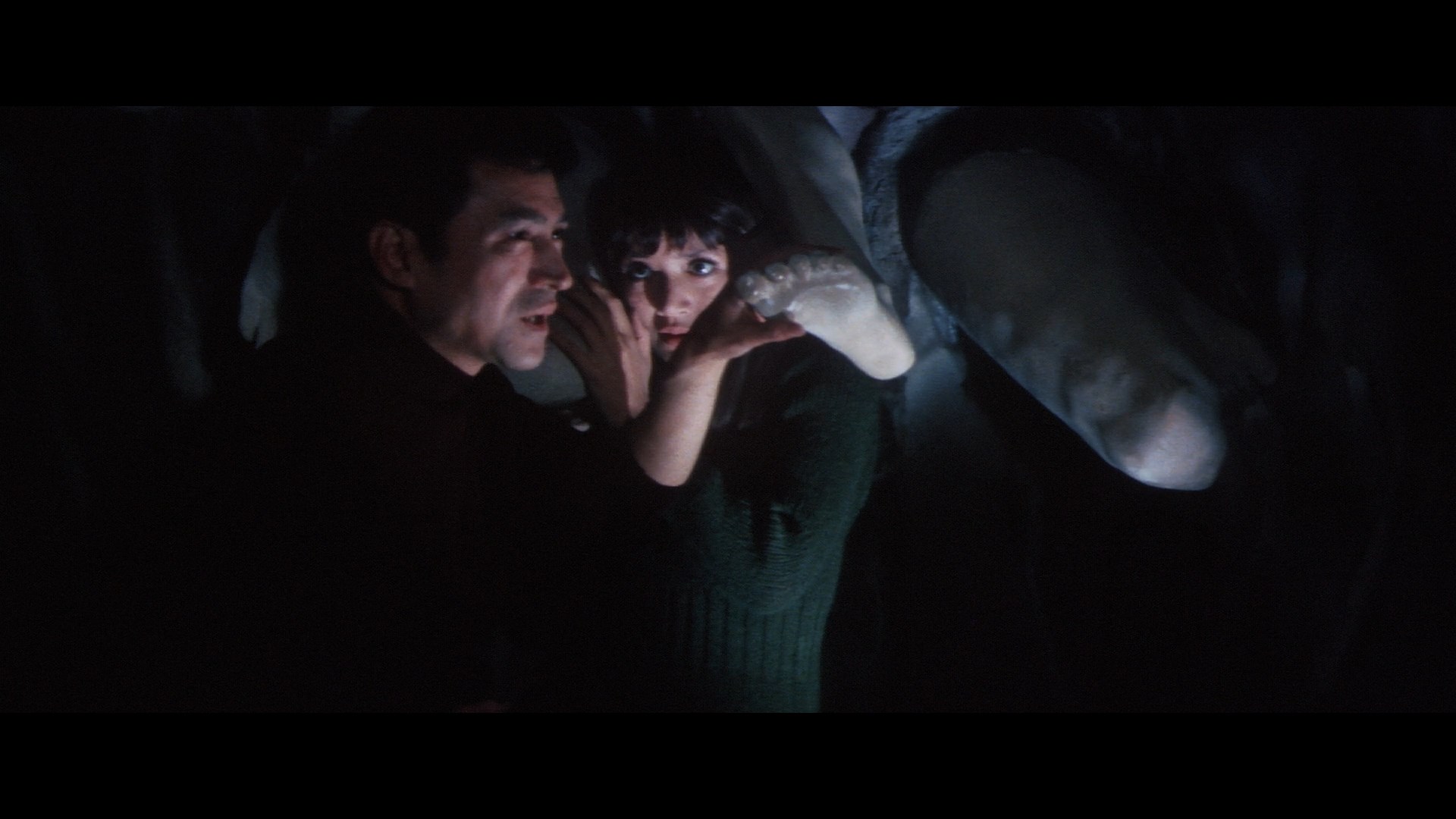 Jackson offers plenty of fascinating production info about the film including some effective method tactics by Funakoshi, the major alterations from the source material (which is more of a standard serial killer story), the connected themes in the director's other films including the abstraction of the human form, and a number of anecdotes about Masumura's other films tied to the participants and themes of this film. A video intro by regular Japanese cinema contributor Tony Rayns (18m33s) covers the director's nearly career-length union with Daiei and his background including his military service, his university experience studying law, his apprenticeship under major directors of the time, his time studying in Italy, and the recurring visual motifs present in this film. Finally, "Blind Beast: Masumura the Supersensualist" (10m51s) is a new visual essay by Seth Jacobowitz running through the central story thread of the film while touching on the elements of sadism and masochism (or in their earlier terminology, supersensualism) and the parallels to earlier Japanese movements and real-life incidents like the notorious Sada Abe. Also included are the original Japanese trailer and a gallery of 36 stills and poster images, while the first pressing comes with an insert booklet featuring an essay by Virginie Sélavy.
Jackson offers plenty of fascinating production info about the film including some effective method tactics by Funakoshi, the major alterations from the source material (which is more of a standard serial killer story), the connected themes in the director's other films including the abstraction of the human form, and a number of anecdotes about Masumura's other films tied to the participants and themes of this film. A video intro by regular Japanese cinema contributor Tony Rayns (18m33s) covers the director's nearly career-length union with Daiei and his background including his military service, his university experience studying law, his apprenticeship under major directors of the time, his time studying in Italy, and the recurring visual motifs present in this film. Finally, "Blind Beast: Masumura the Supersensualist" (10m51s) is a new visual essay by Seth Jacobowitz running through the central story thread of the film while touching on the elements of sadism and masochism (or in their earlier terminology, supersensualism) and the parallels to earlier Japanese movements and real-life incidents like the notorious Sada Abe. Also included are the original Japanese trailer and a gallery of 36 stills and poster images, while the first pressing comes with an insert booklet featuring an essay by Virginie Sélavy.
ARROW VIDEO (Blu-ray)
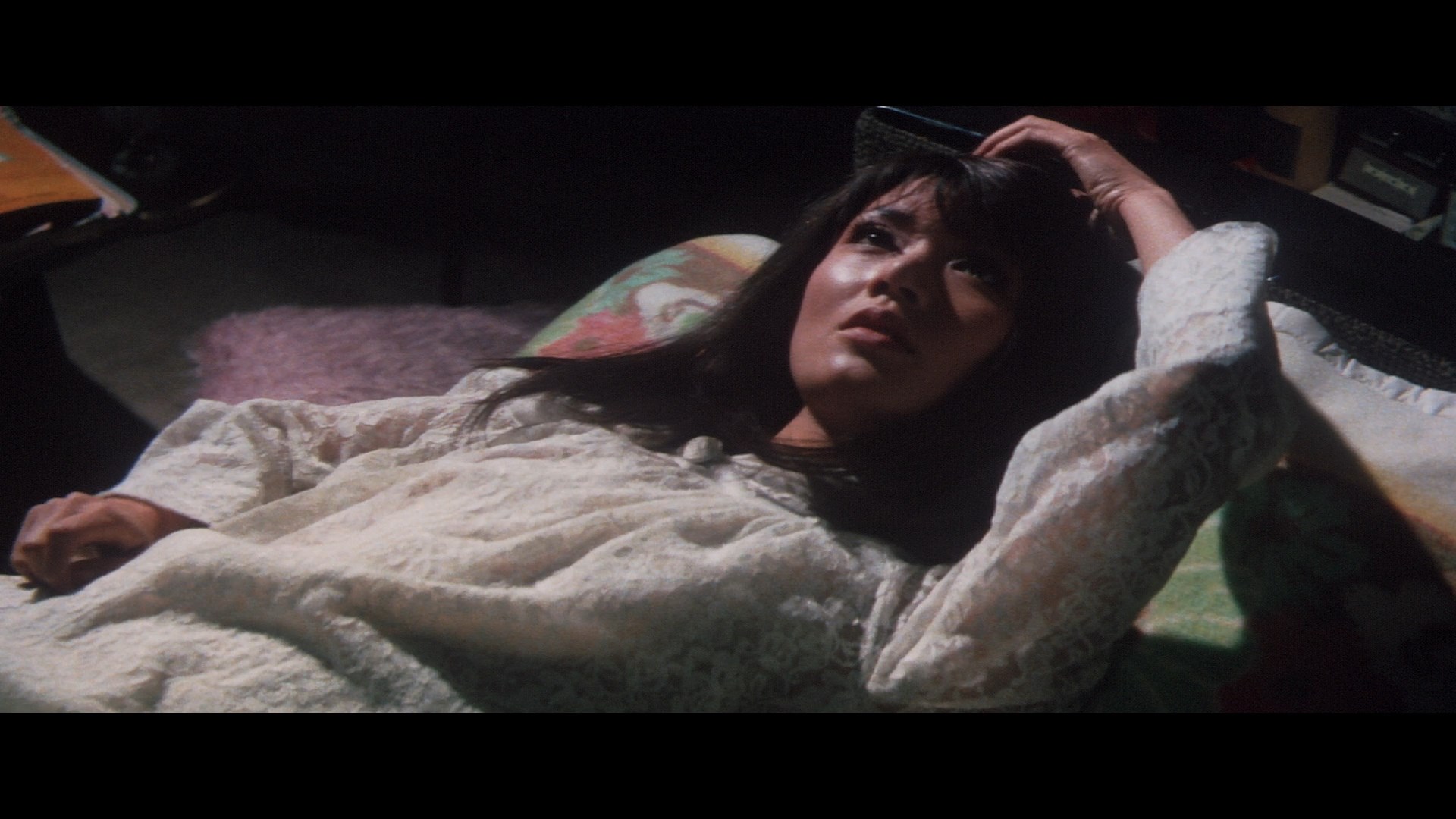
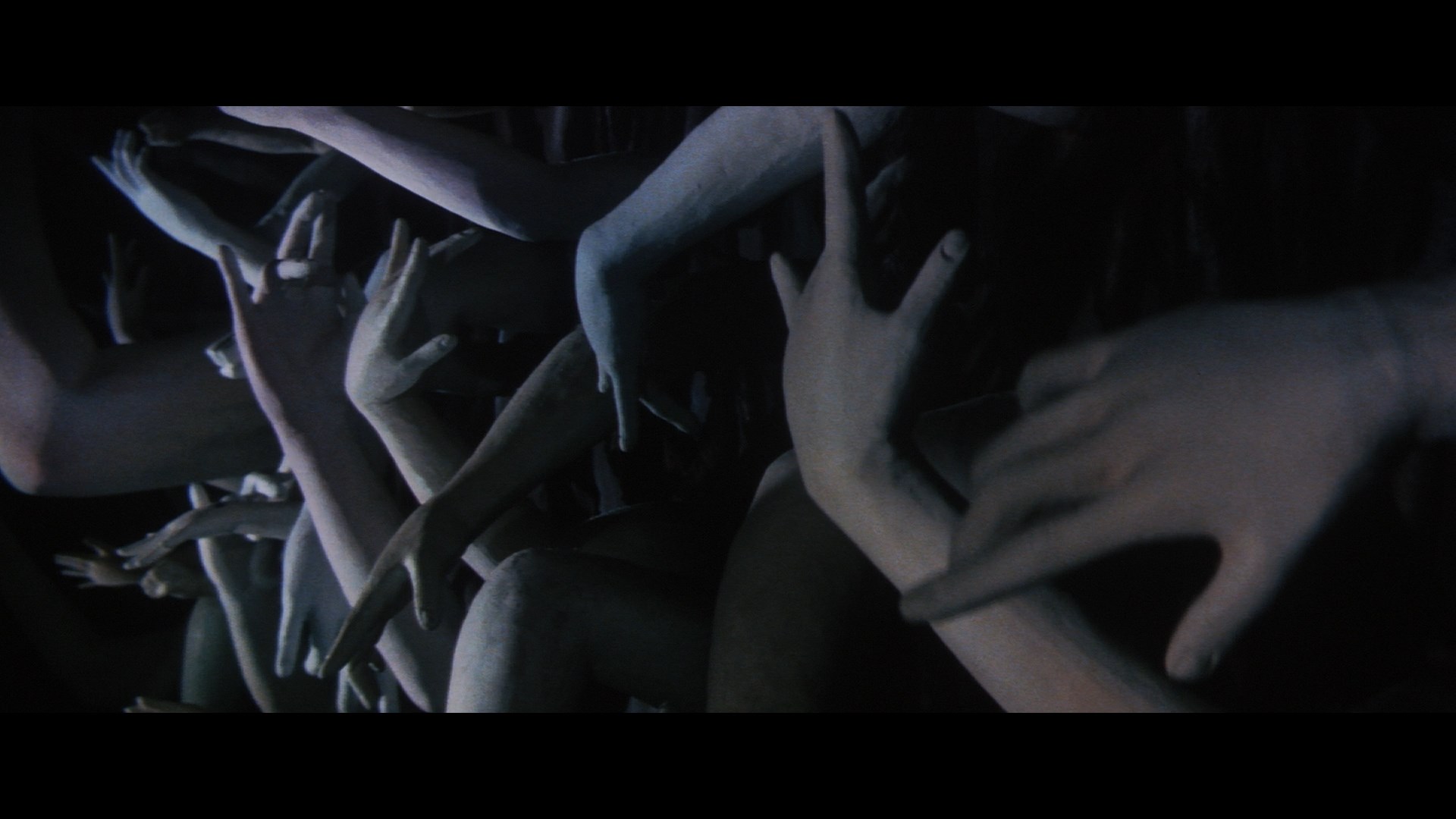
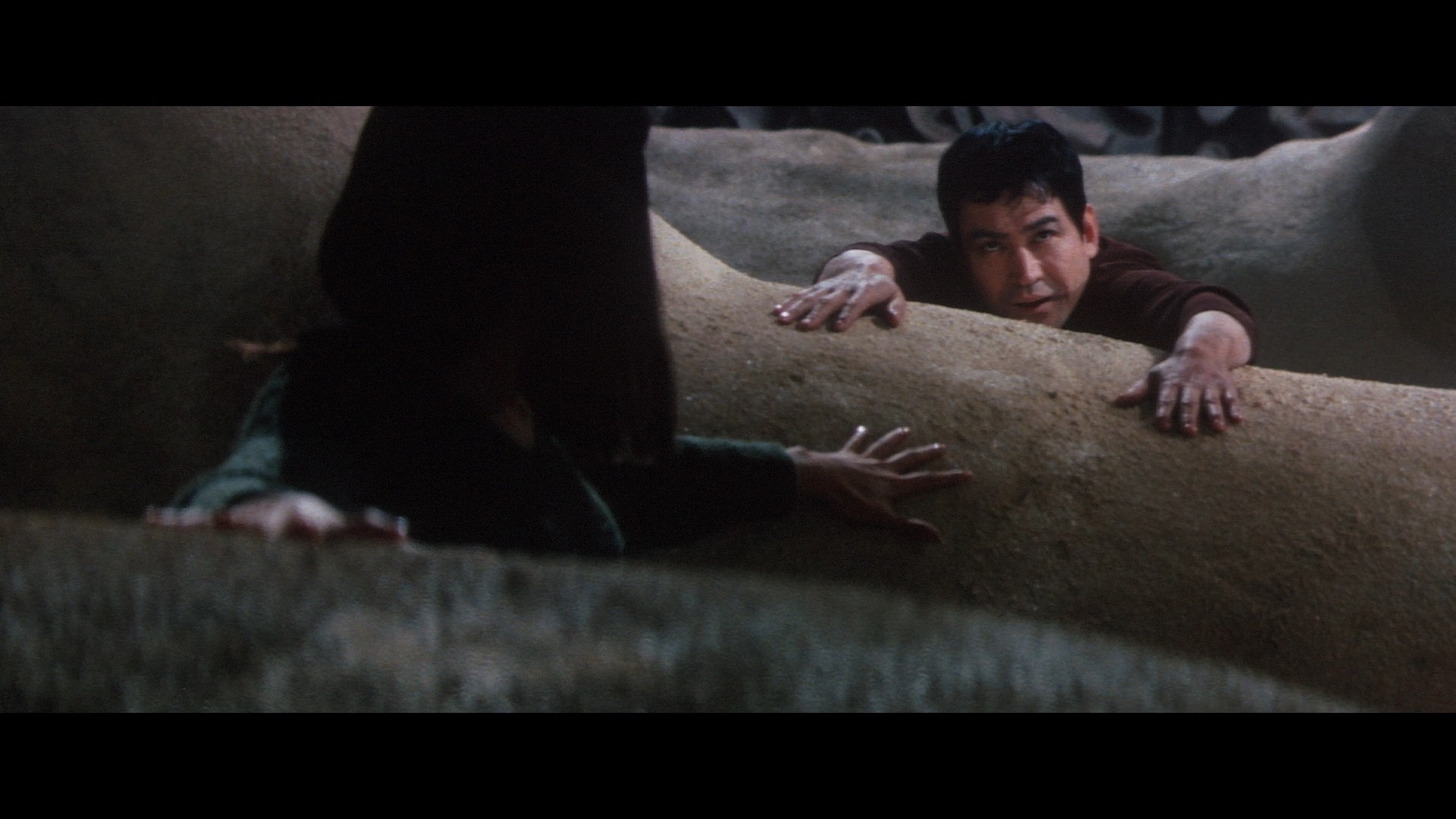
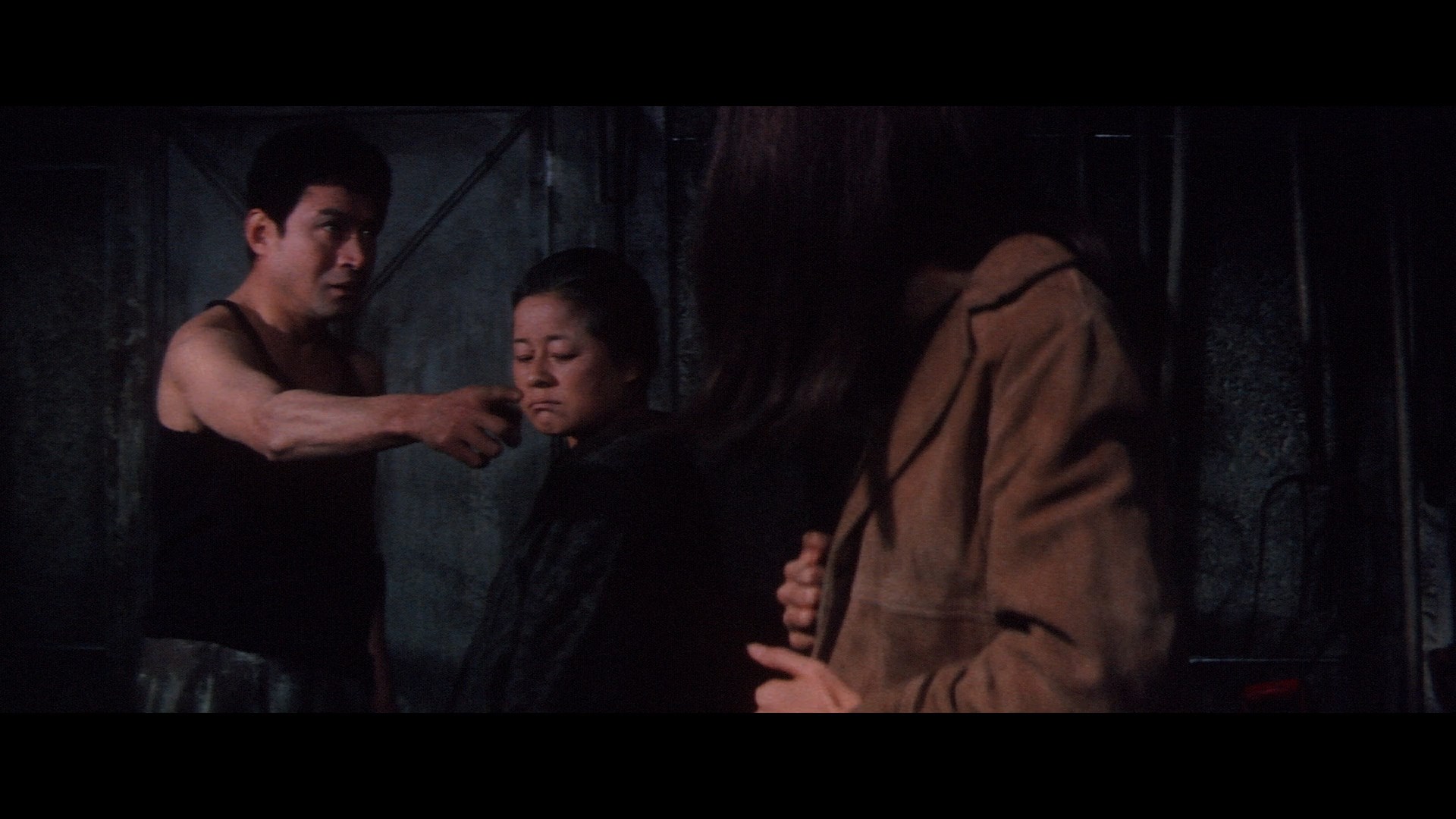
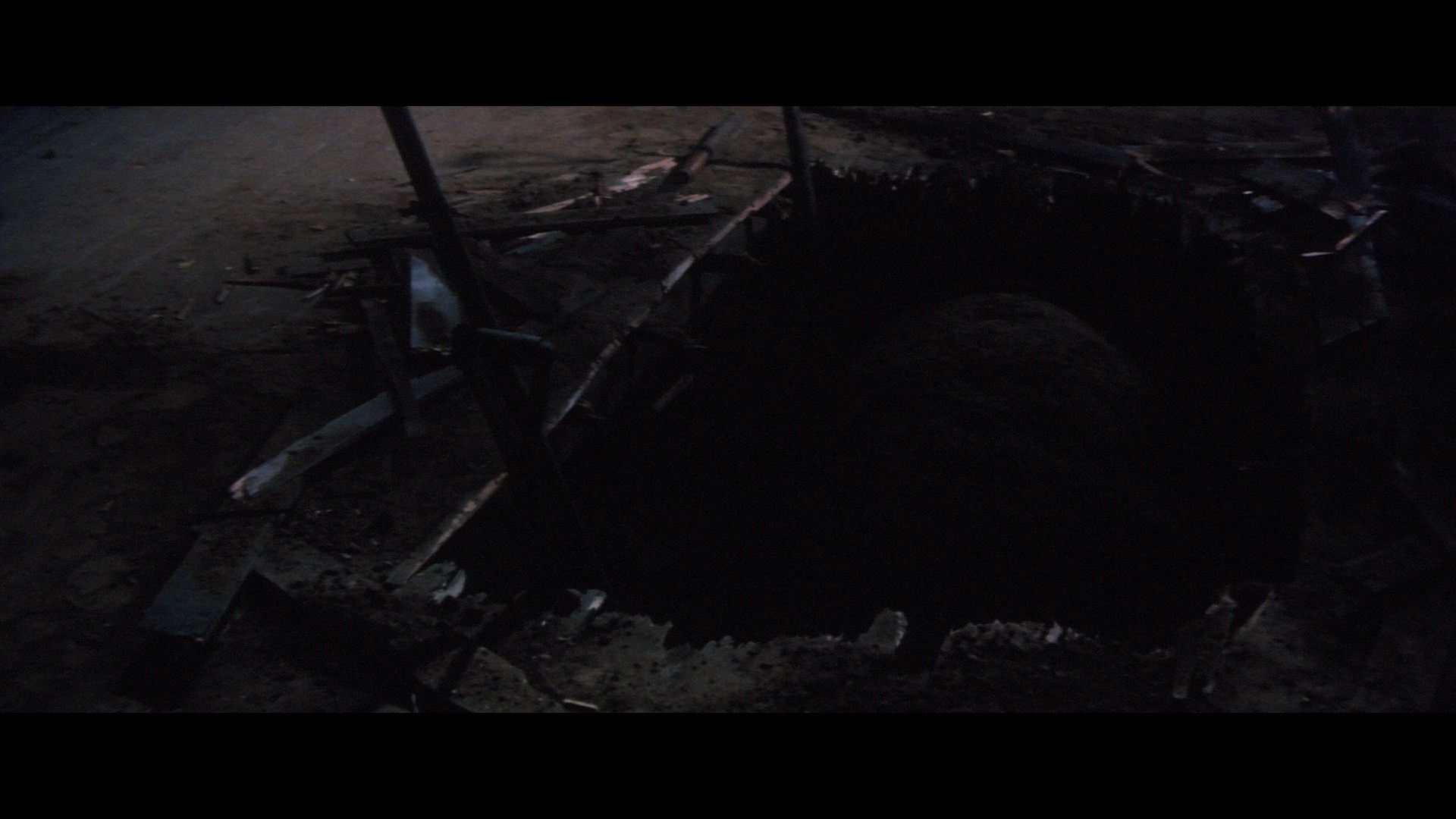
FANTOMA (DVD)
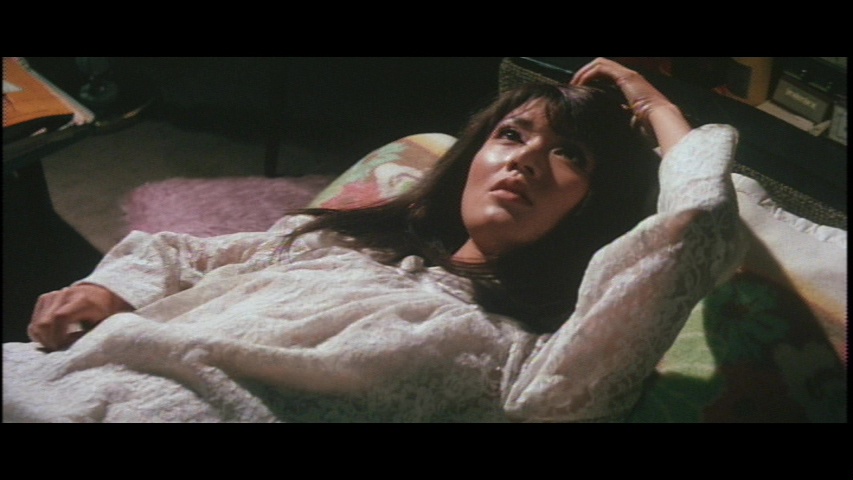
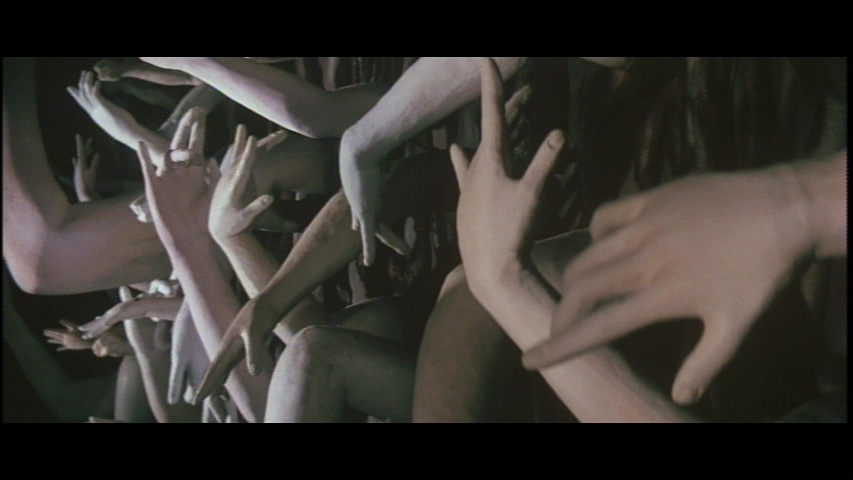
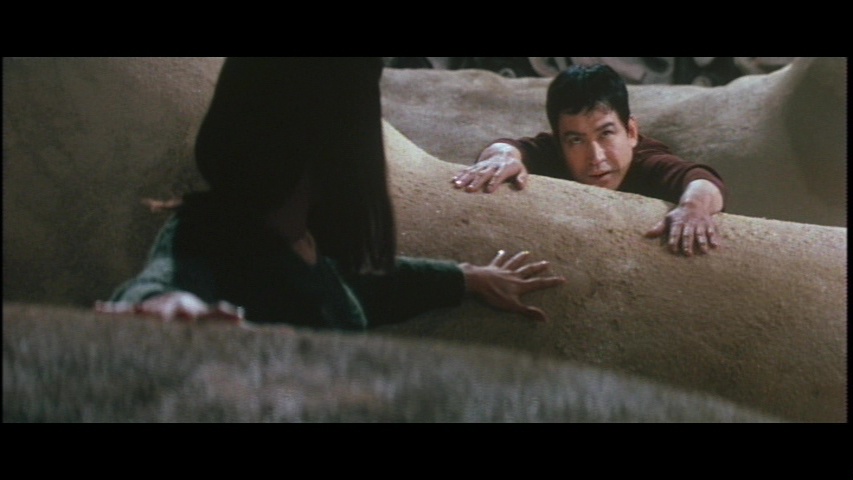
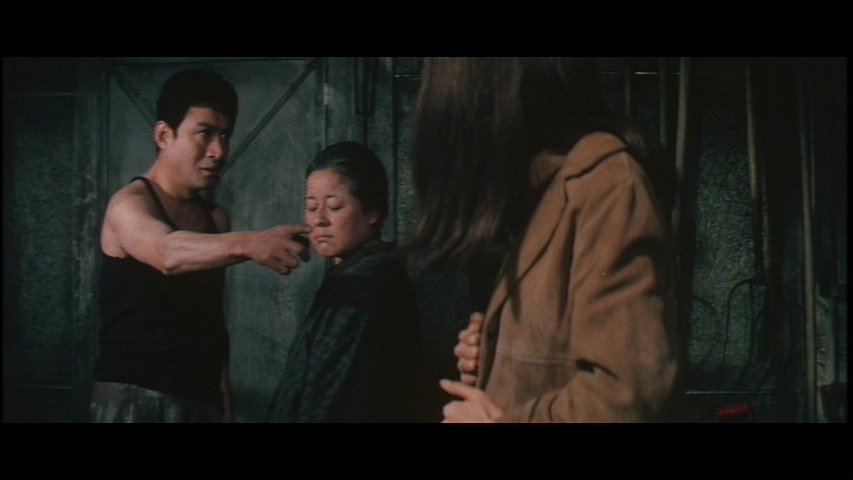
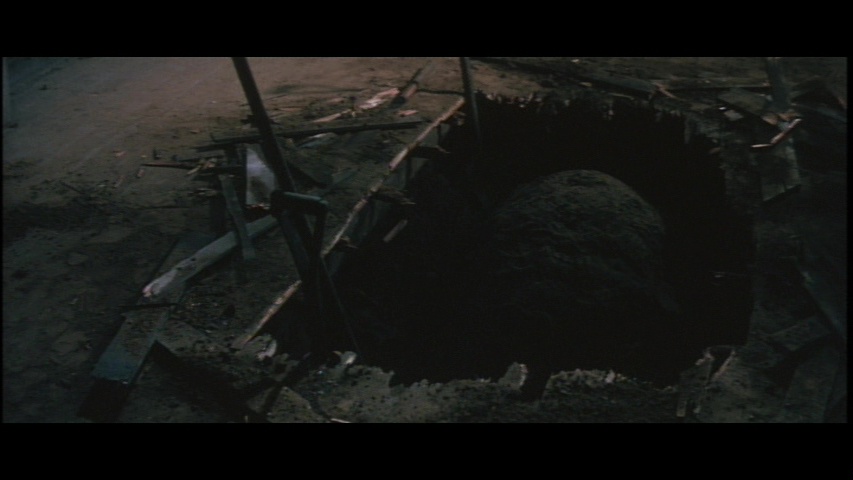
Updated review on July 24, 2021



 director Yasuzô Masumura (Giants and Toys) and legendary Gothic horror writer Edogawa
director Yasuzô Masumura (Giants and Toys) and legendary Gothic horror writer Edogawa  Rampo, Blind Beast (Moju) became something of a hotly desired title among English-speaking horror fans back in the '80s and '90s after a tantalizing write up in Phil Hardy's Encyclopedia of the Horror Film, followed by the appropriation of its shocking conclusion into a certain widely detested art film in the late '90s. Out of circulation, the film popped up in English-subtitled prints in the early '00s and inaugurated a major Western appraisal of Masumura's work thanks to a string of essential DVD releases at the time, now revived again on Blu-ray courtesy of Arrow Video.
Rampo, Blind Beast (Moju) became something of a hotly desired title among English-speaking horror fans back in the '80s and '90s after a tantalizing write up in Phil Hardy's Encyclopedia of the Horror Film, followed by the appropriation of its shocking conclusion into a certain widely detested art film in the late '90s. Out of circulation, the film popped up in English-subtitled prints in the early '00s and inaugurated a major Western appraisal of Masumura's work thanks to a string of essential DVD releases at the time, now revived again on Blu-ray courtesy of Arrow Video. determined to capture her physical and spiritual essence
determined to capture her physical and spiritual essence  in his craft - commence a mutually destructive relationship based on sex, pain, and obsession, leading to an inevitable, grotesque finale.
in his craft - commence a mutually destructive relationship based on sex, pain, and obsession, leading to an inevitable, grotesque finale. shadows and rich colors. For an interesting double bill, try pairing this one up with the amazing S&M Italian captivity favorite, The Frightened Woman, which makes similar use of the same premise and giant sculpted
shadows and rich colors. For an interesting double bill, try pairing this one up with the amazing S&M Italian captivity favorite, The Frightened Woman, which makes similar use of the same premise and giant sculpted  bodies.
bodies. subtitles are included. A very well-researched and worthwhile audio commentary by Earl
subtitles are included. A very well-researched and worthwhile audio commentary by Earl  Jackson offers plenty of fascinating production info about the film including some effective method tactics by Funakoshi, the major alterations from the source material (which is more of a standard serial killer story), the connected themes in the director's other films including the abstraction of the human form, and a number of anecdotes about Masumura's other films tied to the participants and themes of this film. A video intro by regular Japanese cinema contributor Tony Rayns (18m33s) covers the director's nearly career-length union with Daiei and his background including his military service, his university experience studying law, his apprenticeship under major directors of the time, his time studying in Italy, and the recurring visual motifs present in this film. Finally, "Blind Beast: Masumura the Supersensualist" (10m51s) is a new visual essay by Seth Jacobowitz running through the central story thread of the film while touching on the elements of sadism and masochism (or in their earlier terminology, supersensualism) and the parallels to earlier Japanese movements and real-life incidents like the notorious Sada Abe. Also included are the original Japanese trailer and a gallery of 36 stills and poster images, while the first pressing comes with an insert booklet featuring an essay by Virginie Sélavy.
Jackson offers plenty of fascinating production info about the film including some effective method tactics by Funakoshi, the major alterations from the source material (which is more of a standard serial killer story), the connected themes in the director's other films including the abstraction of the human form, and a number of anecdotes about Masumura's other films tied to the participants and themes of this film. A video intro by regular Japanese cinema contributor Tony Rayns (18m33s) covers the director's nearly career-length union with Daiei and his background including his military service, his university experience studying law, his apprenticeship under major directors of the time, his time studying in Italy, and the recurring visual motifs present in this film. Finally, "Blind Beast: Masumura the Supersensualist" (10m51s) is a new visual essay by Seth Jacobowitz running through the central story thread of the film while touching on the elements of sadism and masochism (or in their earlier terminology, supersensualism) and the parallels to earlier Japanese movements and real-life incidents like the notorious Sada Abe. Also included are the original Japanese trailer and a gallery of 36 stills and poster images, while the first pressing comes with an insert booklet featuring an essay by Virginie Sélavy.![]()